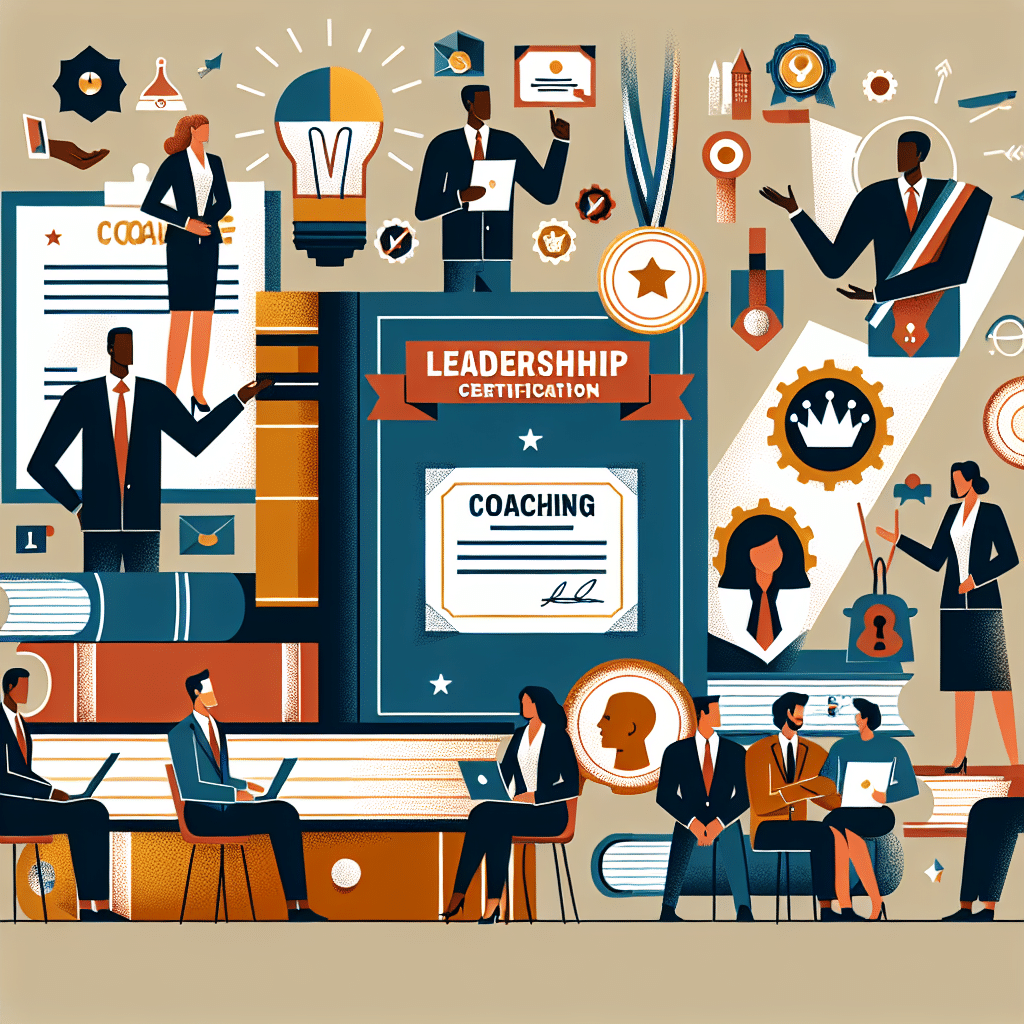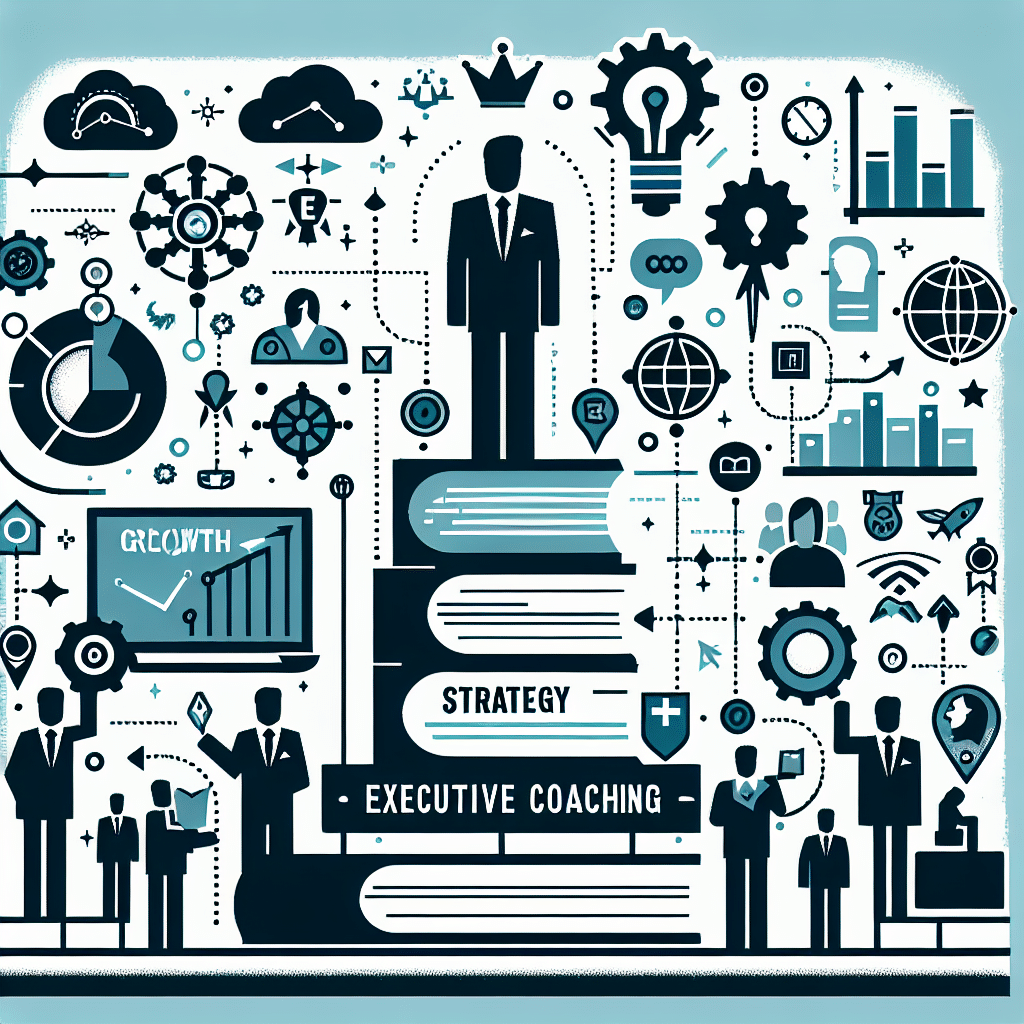Blending Leadership Excellence with Coaching Mastery
Introduction
Welcome to the fascinating world of leadership and coaching training, where the art of guiding teams meets the science of personal development. Think of leadership as the captain steering a ship through stormy seas, while coaching is like having a seasoned navigator by your side, helping you chart the best course. In today’s fast-paced corporate landscape, blending these two elements isn’t just beneficial it’s essential.
As organizations strive for excellence, the demand for effective leadership skills is soaring. According to recent studies, 75% of companies believe that effective training and coaching are crucial for successful digital transformation. This isn’t just a buzzword; it’s a call to action for leaders to evolve and adapt.
But what does it mean to blend leadership excellence with coaching mastery? It means fostering an environment where leaders not only inspire but also equip their teams with the tools needed for success. This approach goes beyond traditional leadership development and dives deep into innovative coaching techniques that empower individuals to thrive.
In this blog post, we’ll explore how integrating executive coaching with strategic leadership training can transform not just individual leaders but entire organizations. We’ll unveil practical strategies, common pitfalls to avoid, and examples that illustrate the powerful synergy between leadership and coaching.

So buckle up as we embark on this journey through the realms of leadership and management courses, where we’ll uncover how effective leadership skills can be cultivated through tailored coaching programs designed for today’s challenges!
The Importance of Leadership and Coaching Training
In today’s fast-paced corporate jungle, the need for leadership and coaching training has never been more critical. Think of it as the secret sauce that transforms ordinary managers into extraordinary leaders. But why exactly is this blend so vital?
First off, leadership development is not just a buzzword; it’s a necessity. Companies that invest in leadership skills see significant improvements in employee engagement and retention. According to a study by Gallup, organizations with strong leadership have 30% higher employee engagement levels. That’s not just fluff it translates directly into productivity and profitability.
Key Statistics:
- 75% of companies believe effective training is essential for successful digital transformation (PwC).
- 68% of leaders acknowledge that integrating AI strategies with coaching significantly boosts effectiveness (HBR).
Now, let’s talk about the role of coaching techniques in this mix. Effective management coaching isn’t merely about giving directives; it’s about fostering an environment where leaders can thrive. This is where structured programs like team leadership training, corporate coaching programs, and even specialized workshops come into play.
The Ripple Effect on Organizational Culture
A well-rounded approach to leadership and coaching training can create a ripple effect throughout an organization:
- Enhanced Communication Skills: Leaders equipped with effective communication skills can articulate vision and strategy clearly, reducing misunderstandings.
- Improved Conflict Resolution: Training in conflict resolution empowers leaders to address issues proactively, fostering a collaborative environment.
- Resilience Building: In times of change, resilient leaders inspire their teams to adapt rather than resist.
The ROI of Investing in Leadership Training
You might wonder, “What’s the return on investment?” Well, it’s substantial! Companies that prioritize leadership development report:
| Metric | % Improvement |
|---|---|
| Employee Retention Rates | 25%+ |
| Sales Growth | 20%+ |
| Cultural Alignment Scores | 15%+ |
The bottom line? Investing in leadership and coaching training not only cultivates effective leadership skills but also strengthens your organizational fabric. So if you’re still on the fence about it jump off! Your future leaders are waiting!
This isn’t just about enhancing individual capabilities; it’s about creating a culture where every team member feels empowered to contribute to their fullest potential. Ready to take the plunge?
Defining Leadership Excellence
Leadership excellence is more than just a buzzword; it’s the secret sauce that transforms ordinary teams into extraordinary ones. It’s like being the captain of a ship navigating through stormy seas it requires skill, vision, and, most importantly, a deep understanding of what makes people tick.
Characteristics of Effective Leaders
So, what exactly makes a leader effective? Here are some key traits:
- Emotional Intelligence: The ability to understand and manage emotions, both their own and those of others. It’s like having a superpower in the workplace!
- Visionary Thinking: Great leaders can see beyond the present and envision a future that inspires others to follow.
- Communication Skills: The art of conveying ideas clearly and persuasively. Think of it as being fluent in the language of influence.
- Adaptability: The best leaders thrive in change, pivoting strategies when necessary kind of like a dancer adjusting to new music.
- Integrity: Trust is built on honesty; leaders who embody integrity foster loyalty within their teams.
Impact of Leadership on Organizational Success
The impact of effective leadership on an organization is profound. According to research by Gallup, 70% of employees say they would work harder if they felt their managers cared about their development. When leaders invest in leadership and coaching training, they not only enhance their own skills but also empower their teams to reach new heights.
Key Takeaway: Effective leadership directly correlates with employee engagement and organizational performance. Investing in leadership development is not just beneficial; it’s essential for success!

Understanding Coaching Mastery
Coaching mastery is not just a buzzword; it’s the secret sauce that turns good leaders into great ones. So, what exactly is coaching mastery? Think of it as the art and science of guiding individuals to unlock their potential while honing their leadership skills. It involves a deep understanding of various coaching techniques and how they can be applied to foster personal growth and organizational success.
At its core, coaching mastery is about more than just asking the right questions or providing feedback. It’s about building trust, creating a safe space for exploration, and encouraging leaders to reflect on their own experiences. A master coach becomes a mirror, reflecting not only the strengths but also the blind spots that leaders may not see themselves.
The Role of a Coach in Leadership Development
In the realm of leadership and coaching training, the role of a coach is multifaceted:
- Facilitator: Coaches guide leaders through discussions that help clarify goals and align personal ambitions with organizational objectives.
- Mentor: They share insights from their own experiences, helping leaders navigate challenges with confidence.
- Accountability Partner: Coaches keep leaders accountable for their commitments, ensuring progress towards goals.
- Feedback Provider: Constructive feedback is crucial for growth; coaches provide this in a way that encourages learning rather than discouragement.
Did you know? Effective coaching can lead to a 70% improvement in leadership effectiveness, according to various studies on organizational performance!
The impact of coaching mastery on leadership development cannot be overstated. It equips leaders with essential skills such as emotional intelligence, conflict resolution, and strategic thinking. Furthermore, when integrated into formal programs like corporate coaching or leadership workshops, it enhances overall team performance and drives organizational success.
This blend of personal development coaching and structured training creates an environment conducive to high-performance team dynamics. Ultimately, mastering coaching techniques allows for transformational leadership where leaders don’t just lead; they inspire others to reach new heights.
The journey towards coaching mastery is ongoing. It requires continuous learning and adaptation to new challenges within the ever-evolving landscape of business leadership. As we delve deeper into this blog series, we will explore how integrating these concepts can elevate your organization’s leadership framework.
Integrating Leadership Development with Coaching Techniques
When it comes to enhancing leadership and coaching training, the magic happens at the intersection of leadership development and effective coaching techniques. Think of it as a dynamic duo, like peanut butter and jelly, where each element amplifies the other’s strengths.
Key Coaching Techniques for Leaders
To truly integrate coaching into leadership development, we need to focus on a few key techniques:
- Active Listening: This isn’t just nodding along while someone speaks. It’s about truly engaging with your team’s feedback and concerns, which can lead to better decision-making.
- Powerful Questioning: Asking the right questions can unlock potential. Instead of telling your team what to do, encourage them to think critically by asking questions that guide them toward solutions.
- Feedback Loops: Regularly soliciting feedback creates a culture of open communication. This not only helps leaders adjust their strategies but also empowers teams to feel valued.
- Goal Setting: Aligning individual goals with organizational objectives ensures everyone is rowing in the same direction. Use SMART goals (Specific, Measurable, Achievable, Relevant, Time-bound) for clarity.
Aligning Coaching with Leadership Goals
The next step is ensuring that your coaching techniques align seamlessly with your leadership goals. Here’s how you can do this effectively:
- Create a Leadership Development Plan: Design a roadmap that outlines skills needed for success in various roles within your organization. This plan should incorporate elements from both leadership workshops and management coaching.
- Incorporate Emotional Intelligence Training: Leaders who understand emotional intelligence can navigate complex interpersonal dynamics effectively. Training in this area should be a cornerstone of any corporate coaching program.
- Utilize Performance Coaching Strategies: Regular check-ins focused on performance metrics help leaders stay accountable while also fostering an environment where team members feel supported in their professional growth.
- Merging Training Programs: Blend traditional leadership training courses with innovative coaching methods for a comprehensive approach that addresses both hard and soft skills.
Did You Know? Organizations that integrate leadership development with coaching techniques report up to 30% higher employee engagement rates! This shows that when leaders invest in their personal growth alongside their teams’, everyone benefits.

The integration of these elements not only enhances individual capabilities but also strengthens overall organizational performance. By focusing on adaptive leadership skills development through targeted coaching techniques, organizations can cultivate an environment ripe for innovation and resilience.
If you want to take your organization’s leadership capabilities to new heights, consider how integrating these approaches can create lasting change. After all, it’s not just about developing leaders; it’s about creating an ecosystem where everyone thrives!
Effective Leadership Skills through Coaching Programs
When it comes to leadership and coaching training, the magic happens when theory meets practice. Corporate coaching programs are not just a fad; they’re a necessity for cultivating effective leadership skills that can steer organizations toward success.
Imagine this: You’re at the helm of a ship navigating through stormy seas. What you need isn’t just a map, but a seasoned navigator (a.k.a. your coach) who helps you read the stars and adjust your sails accordingly. That’s what effective leadership skills through coaching can do for you!
Overview of Corporate Coaching Programs
Corporate coaching programs are designed to provide leaders with the tools they need to thrive in their roles. These programs often include:
- One-on-one executive coaching: Tailored sessions that focus on individual leadership challenges.
- Group workshops: Interactive sessions that foster team collaboration and shared learning experiences.
- Leadership mentoring: Pairing less experienced leaders with seasoned veterans to share insights and strategies.
- Performance coaching strategies: Techniques aimed at improving specific leadership competencies.
Benefits of Leadership Workshops and Training Sessions
The benefits of engaging in leadership workshops and training sessions are manifold:
- Enhanced communication skills: Effective leaders know how to convey their vision clearly and inspire their teams.
- Conflict resolution training for leaders: Learning how to navigate disagreements constructively can transform team dynamics.
- Goal setting in leadership training: Establishing clear objectives aligns team efforts and boosts accountability.
- Emotional intelligence in leadership: Understanding one’s own emotions and those of others can significantly enhance team engagement and performance.
The integration of effective coaching techniques into leadership development is not just about honing existing skills; it’s about fostering an environment where innovation thrives. Think of it as planting seeds in fertile soil coaching provides the nutrients needed for those seeds (your potential leaders) to grow into towering trees of success!
The Role of Emotional Intelligence in Leadership and Coaching Training
Emotional intelligence (EI) is like the secret sauce in the recipe for effective leadership and coaching training. It’s not just about knowing how to lead or coach; it’s about understanding yourself and others on a deeper level. Think of EI as the GPS for navigating the complex emotional landscapes of team dynamics and individual motivations.
In today’s fast-paced corporate world, leaders are often faced with challenges that require more than just technical skills. Emotional intelligence equips them with the ability to:
- Recognize their own emotions: Self-awareness is crucial. Leaders who understand their emotional triggers can manage their reactions, leading to better decision-making.
- Empathize with others: Understanding team members’ feelings fosters a supportive environment, essential for effective leadership and coaching.
- Communicate effectively: Strong communication skills are vital in conveying ideas clearly and persuasively while also being receptive to feedback.
- Resolve conflicts: Leaders with high EI can navigate conflicts smoothly, turning potential disruptions into opportunities for growth.
This blend of self-awareness and interpersonal skills is particularly important in leadership development, where leaders must inspire trust and motivate teams. For instance, during team leadership training, incorporating emotional intelligence practices can enhance participants’ ability to connect with their teams authentically. This leads to improved morale and productivity who wouldn’t want that?
Did You Know? According to a study by TalentSmart, 90% of top performers have high emotional intelligence! This statistic underscores the importance of EI in not only leadership but also in successful coaching techniques.
The Impact on Coaching Techniques
When it comes to coaching, whether through formal programs or informal mentorships, emotional intelligence plays a pivotal role. Coaches who possess high EI can tailor their approaches based on the emotional state and needs of their clients. This adaptability is key for:
- Personal development coaching: Coaches can better support individuals in achieving their personal goals by understanding what drives them emotionally.
- Motivational coaching techniques: By tapping into what inspires individuals, coaches can foster motivation that resonates deeply.
- Change management coaching: Leaders equipped with EI are more adept at guiding teams through transitions, minimizing resistance by addressing emotional concerns upfront.
A Common Misconception
A common misconception is that emotional intelligence is merely about being nice or agreeable. In reality, it encompasses a range of competencies including resilience building in leaders training programs, which prepares them to face challenges head-on while maintaining empathy towards their teams.

The integration of emotional intelligence into leadership and coaching training isn’t just beneficial it’s essential for cultivating effective leadership skills that adapt over time. As we move forward into an era where business landscapes are continuously evolving, developing these skills will be paramount for both personal growth and organizational success.
If you’re looking to enhance your own leadership journey or improve your coaching strategies, consider diving deeper into the world of emotional intelligence your future self (and your teams) will thank you!
Transformational Coaching for Leaders: Strategies and Techniques
Transformational coaching is not just a buzzword; it’s a game-changer for leaders aiming to elevate their leadership and coaching training efforts. Imagine your leadership style as a garden. With the right coaching techniques, you can cultivate an environment where both you and your team can flourish. Here’s how to dig deep into transformational coaching and unearth strategies that can lead to profound growth.
1. Embrace Adaptive Leadership Skills Development
In today’s fast-paced business landscape, adaptability is key. Transformational coaches encourage leaders to develop adaptive leadership skills that allow them to respond effectively to change. This involves:
- Assessing the current organizational climate.
- Identifying potential challenges and opportunities.
- Encouraging open communication among team members.
2. Leverage Emotional Intelligence in Coaching
Emotional intelligence (EI) is the secret sauce of effective leadership. A transformational coach helps leaders enhance their EI by:
- Teaching active listening skills for better understanding.
- Fostering empathy to build stronger relationships.
- Implementing conflict resolution training for leaders, ensuring smoother interactions within teams.
3. Goal Setting in Leadership Training
A key component of transformational coaching is effective goal setting. This isn’t just about ticking boxes; it’s about aligning personal ambitions with organizational objectives. Here’s how:
- Create SMART Goals: Specific, Measurable, Achievable, Relevant, Time-bound goals keep leaders focused.
- Incorporate Feedback Loops: Regular check-ins ensure progress is on track and adjustments are made as needed.
- Cultivate Accountability: Encourage team members to hold each other accountable for reaching shared goals.
4. Innovative Leadership Strategies Training
The best transformational coaches introduce innovative strategies that disrupt traditional thinking patterns. Consider implementing:
- Cognitive Behavioral Techniques: These help leaders reframe negative thoughts into positive actions.
- Mental Models Workshops: Encourage leaders to explore different perspectives when solving problems.
- Scenario Planning Exercises: Prepare teams for various outcomes by simulating real-world challenges.
The beauty of transformational coaching lies in its ability to create a ripple effect when one leader transforms, their influence extends throughout the organization, leading to enhanced team dynamics and overall success in leadership development programs.
If you’re ready to take your leadership journey up a notch, consider integrating these strategies into your next management coaching session or leadership workshop. After all, in the world of corporate coaching programs, growth doesn’t just happen it’s cultivated!
Building High-Performance Teams through Leadership Development
When it comes to building high-performance teams, think of leadership development as the secret sauce that makes everything taste better. You can have all the right ingredients talented individuals, innovative ideas, and cutting-edge technology but without the right leadership, it’s like trying to bake a cake without an oven. Spoiler alert: it won’t rise!
Leadership and coaching training is crucial in nurturing a team that not only meets its goals but exceeds them. Here’s how effective leadership development can transform your team dynamics:
- Fostering Trust: Great leaders create an environment where team members feel safe to express their ideas and concerns. This trust leads to open communication and collaboration, essential for high performance.
- Enhancing Skills: Leadership development programs equip managers with the necessary skills like emotional intelligence and conflict resolution to guide their teams effectively. Think of it as giving them a toolbox filled with coaching techniques that can be applied in real-time.
- Aligning Goals: When leaders are trained in strategic leadership training, they can better align team goals with organizational objectives. This alignment ensures everyone is rowing in the same direction, making it easier to achieve collective success.
- Cultivating Resilience: High-performance teams face challenges head-on. Leaders who undergo resilience-building training are better equipped to help their teams navigate setbacks and maintain motivation.
A recent study found that organizations investing in leadership development see a 25% increase in team performance compared to those that don’t prioritize this area. This isn’t just fluff it’s backed by data! High-performance team coaching isn’t just about achieving results; it’s about creating an environment where innovation thrives.
Key Takeaway: Investing in leadership development is not just a nice-to-have; it’s a necessity for any organization looking to cultivate high-performance teams. The right training programs can lead to improved communication skills, enhanced emotional intelligence, and ultimately, greater organizational success.
Incorporating these elements into your leadership strategy will not only enhance individual performance but also elevate the entire team’s capabilities. Remember, great leaders don’t just manage they inspire! So let’s roll up our sleeves and start building those high-performance teams today!
Conclusion: The Future of Leadership and Coaching Integration
As we look ahead, the integration of leadership and coaching training is not just a trend; it’s becoming the backbone of effective organizational strategy. In a world where change is the only constant, leaders must evolve from traditional management roles into dynamic, adaptive figures who can thrive in uncertainty.
The fusion of leadership development with coaching techniques creates a powerful synergy that drives professional growth training. This integration enables leaders to harness their emotional intelligence, improve communication skills, and develop conflict resolution strategies that are essential in today’s diverse workplaces.
One key trend shaping this future is the rise of transformational coaching. Unlike conventional methods that focus solely on performance metrics, transformational coaching emphasizes personal growth and resilience building. Leaders are now trained not just to achieve goals but to inspire others to reach their potential think of it as upgrading from a coach to a mentor who plays an active role in team dynamics.
- The integration of leadership and coaching training enhances adaptability in leaders.
- Emotional intelligence is becoming a core component of effective leadership skills.
- Transformational coaching fosters both individual and organizational growth.
Moreover, with the increasing importance of digital transformation, organizations are recognizing that they need more than just technical skills. They require leaders who can guide teams through change management coaching while fostering innovation through high-performance team coaching techniques. This means investing in comprehensive leadership workshops that align with strategic goals is no longer optional it’s essential for survival.
In conclusion, as we navigate this exciting landscape where leadership and coaching converge, organizations must prioritize programs that blend these elements seamlessly. By doing so, they will not only enhance their leadership capabilities but also create an environment ripe for collaboration and innovation. Are you ready to embrace this integrated approach? Start by exploring tailored solutions that fit your organizational needs today!
Blending Leadership Excellence with Coaching Mastery
…”
},
{
“@type”: “FAQPage”,
“@id”: “#faq”,
“mainEntity”: [
{
“@type”: “Question”,
“name”: “What is the importance of leadership and coaching training?”,
“acceptedAnswer”: {
“@type”: “Answer”,
“text”: “
Leadership and coaching training is crucial for transforming managers into extraordinary leaders. It improves employee engagement and retention, enhances communication skills, and fosters a collaborative environment.
“
}
},
{
“@type”: “Question”,
“name”: “How can emotional intelligence improve leadership?”,
“acceptedAnswer”: {
“@type”: “Answer”,
“text”: “
Emotional intelligence helps leaders understand their own emotions and empathize with others, leading to better decision-making, effective communication, and conflict resolution.
“
}
}
]
},
{
“@type”: [“SpeakableSpecification”],
“@id”:”#speakable-article-1″,
“xpath”:[“/html/head/title”, “/html/head/meta[@name=’description’]/@content”]
}
]
}

















Leave a Reply